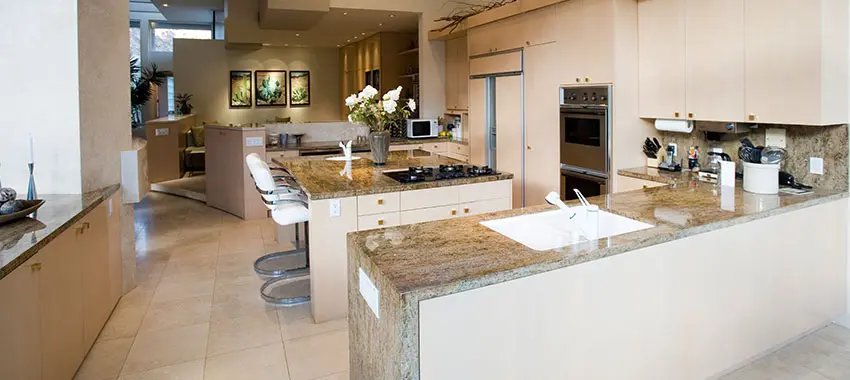Jun
What Causes Granite Countertops to Crack?
Granite countertops are tough, and the last thing you expect is the countertop developing cracks. Unfortunately, the countertops develop cracks. Some of the cracks are a natural part of the stone, while others are caused by use or wear and tear.
When you notice cracks on the countertops, you must be wondering, what causes granite to crack? The cracks are brought about by many things that include:
Natural fissures
As mentioned above, cracks can be natural. Granite is known to have natural fissure cracks that can turn into actual cracks. Natural fissures give the countertops character, and they are nothing to worry about.
If you hired an experienced professional, he might have already noticed them and ensured they aren’t in sensitive areas such as the seams, cut out, and cooktop.
Hard hit
The countertops will also crack if you hit them with a hard or heavy object.
Carrying it flat
While the countertop is made from natural rock, you shouldn’t carry it flat. Carrying it flat can cause injury to anyone carrying it. It can also cause damage to the floor or furniture. In some cases, it causes hairline cracks that can be problematic later on.
Placing a lot of weight on the countertop
In most cases, granite installers will leave a 12-inch overhang on the countertop bars and islands where you can sit and entertain. These areas are usually protected with ibraces or corbels.
These allow extra weight when appropriately installed, but when you place a lot of weight on the countertops, you put the countertops at the risk of cracking. In certain cases, the entire slab breaks and falls onto someone.
Failing to shim the countertops properly
Granite installers shim areas that aren’t touching cabinets. Unfortunately, floors, walls, and homes aren’t perfectly level. During installation, this can bring about plenty of problems, including cracks.
To ensure the areas don’t develop cracks due to weight issues, ensure that you look eye-level with your countertops so you can see the countertops underneath and notice any areas that aren’t touching the cabinet.
The area should have a shim over one foot and silicone to hold the shims.
Cracks due to natural calamity
If you live in an area prone to tornadoes, floods, and hurricanes, your countertops are bound to crack. Hurricanes and tornadoes can pick debris, creating projectiles or missiles that can smash the countertops.
In most cases, the countertops won’t be damaged by a single impact, but the repeated impact will wear away at the countertops, finally leading to cracks.
Hot pots
Although, granite is naturally heat resistant, having been formed through heat, constant exposure to heat over extended periods can weaken the stone leading to cracks. The damage is extensive, especially if the stone is cold at the time of heat exposure, and the difference in temperatures is large.
How to repair a crack in granite
Depending on the size of the crack, you can repair it. There are plenty of ways you can repair it. Some of these ways include:
Using acrylic or epoxy: You can use acrylic or epoxy to glue the pieces together. Your choice material will be influenced by the nature and severity of the crack. You can do the filling by yourself or hire an expert to help you out.
Polishing the cracks: If the cracks are large, you can make them less conspicuous by polishing them. Polishing the countertops requires skill, so you should avoid doing the work by yourself.
When hiring a granite contractor Potomac, ensure he is certified and has been in the industry for a long time. You don’t want someone that will do a mediocre job, do you?
Do nothing: Did you know doing nothing can be a viable way of fixing cracks in the countertops? If the crack are short and hairlike, they present no real problems, so you have nothing to worry about.
Small cracks don’t pose any cleaning issues, and stains aren’t a problem. If you have tried ignoring the cracks without success, consider applying a little extra sealer over the crack, and it will prevent the cracks from being too conspicuous.


